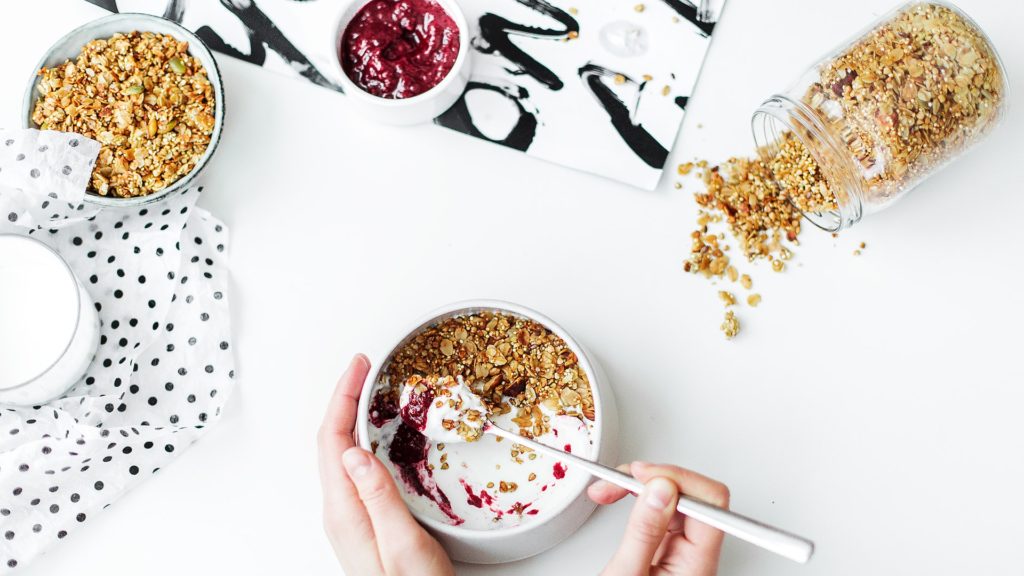
One of the questions you’re probably wondering is, “Is it worth it to take probiotics?” Nowadays, it’s the newest supplement trend, and numerous studies support its efficacy. It’s essential that you know the basics – when’s the best time to take probiotics, which foods to eat, and why you should be considering it on your diet.
Let’s get started on your journey to a healthier and happier you. This article will answer your questions about probiotics. Here’s what you need to know.
How and When to Take Your Probiotics
Does the Timing of Your Probiotic Intake Matter?
Yes, probiotic timing does matters. While it is true that taking probiotics provides many advantages to your health, taking it at the right time can help even more to optimize health benefits. Probiotic timing is only a piece of one big puzzle to ensure that probiotics can perform their job rightly.
The human intestinal tract houses several good and bad bacteria. Probiotics are the good bacteria that help in regulating your digestive and immune system. Before these probiotics can get to work, however, the good bacteria must first establish its presence in your gut. While you already have a population of microorganisms in your stomach, most of the probiotic bacteria are active in the lower gastrointestinal (GI) tract.
Probiotics are sensitive microorganisms that can easily be disturbed by certain factors – stomach acid, temperature, and food sources. When you eat, the digestive system produces stomach acid and bile to break down the food that you consume. For probiotics to perform its work, it needs to get to the lower GI tract which means it must survive the corrosive environment of the stomach.
The acid secreted by the stomach is often too harsh for the sensitive bacteria cultures to thrive on their own. That is why taking probiotics at the right time is crucial to make sure that the beneficial bacteria pass through the stomach and perform well.
When is the Best Time to Take Probiotics?
Timing is everything, but as mentioned above, it’s just one piece of the puzzle. Taking your probiotics at conditions when your stomach acid is at a low level ensures that the good healthy bacteria continue to live and colonize your GI tract. In doing this, they can perform a significant impact on your gut health and immune system.
However, the question remains, “When exactly is the best time to take probiotics?” Although there isn’t an exact time to take probiotics, doctors and experts in the field recommend taking them shortly after a meal or no more than 30 minutes before a meal.
The best time to take probiotics is moments before you take a meal because the food you ingest offers support for the beneficial live microorganisms to survive while they make their way through your GI tract. By allowing some food into the mix, it will help the cultures make it to your intestines without much exposure to the corrosive acid of the stomach.
What Are the Top 5 Probiotic Foods You Should Eat
Knowing which probiotics you should be taking is another piece of the big puzzle to ensure that your body benefits from these good living bacteria. Here are 5 probiotic-rich options that you should consider.
1. Yogurt
One of the best in the probiotic world is live-cultured yogurt. When looking for the brand of yogurt to purchase, it’s best to choose the plain versions with active and live cultures. For instance, brands made from goat’s milk is a great choice. It’s a rich source of vitamins, proteins, and mineral with lower allergenicity and better digestibility than cow’s milk. Goat’s milk is also known to be rich in probiotics like S. thermophilus, Bifidus sp. (Bifidobacterium), and Lactobacillus bulgaricus which are good bacteria for your gut.
2. Fermented Vegetables
Fermentable veggies such as pickles, kimchi and sauerkraut have a punch of prime probiotics. Since these vegetables underwent the process of fermentation, they are extremely rich in organic acids and enzymes which aid in digestion. Moreover, these fermented vegetables also possess the same briny goodness and probiotic potential.
3. Kombucha
Kombucha, or fermented tea, is packed with a high amount of beneficial bacteria and B vitamins. Aficionados call it the “miracle drink” because it is believed to enhance one’s well-being, boost energy and can even help in reducing weight if combined with green tea.
4. Miso
Miso is a traditional Japanese staple made from fermented soybean paste. It’s a salty yet flavorful seasoning used in pasta salad, apple pie or even used to make soup. Miso is also rich in probiotic content, especially Lactobacillus and Bifidus bacteria.
5. Apple Cider Vinegar
Apple cider vinegar is commonly known to help lower blood pressure, blood sugar, and cholesterol level. On top of these benefits, apple cider vinegar promotes the growth of good bacteria. These good bacteria are probiotics. So, while the vinegar doesn’t contain probiotics itself, it is excellent for promoting the growth of them within the body. Just be careful not to take it in straight shots or take in excess as it may damage your teeth, upset your stomach, and burn your throat as it’s so acidic – it’s better to take it together with other foods.

What are the Health Benefits of Taking Probiotics?
In line with knowing when’s the best time to take probiotics and knowing which foods to take, it’s also equally important that you know very well what beneficial effects they do to your body and mind. The more aware you are of how it benefits your body, the more likely you are to have a healthy and satisfying experience.
Here’s an overview of the key health benefits associated with probiotics.
A. Maintain a Healthy Balance of Gut Microbiota (Bacteria in the gut)
As previously mentioned, probiotics are the “good” bacteria for your gut. These live microorganisms can restore the natural balance good and bad bacteria of in your gut. They also aid in improving intestinal function and maintaining the integrity of the lining of the intestines.
B. Prevention and Treatment of Diarrhea
Probiotics are more commonly known for their ability to prevent and treat diarrhea which is a common side effect of antibiotic intake. This side effect is because antibiotics can negatively influence the balance of the gut microbiota. Several studies support the theory that probiotic use lowers the risk of antibiotic-associated diarrhea.
C. Boost and Improve Mental Health
More and more studies show that there is a strong link between gut health and mental health. Probiotics do not only cause your gut health to thrive, but it also enhances one’s mood and improve some mental health disorders.
D. Keep the Heart Healthy
Certain strains of probiotics can help keep your cardiovascular health in good condition. It is due to their ability to lower the “bad” cholesterol (LDL) in your blood and aid in lowering blood pressure. For instance, lactic acid-producing bacteria breaks down bile in the gut. This bile is a naturally occurring fluid produced by the liver, heavily made of cholesterol.
E. Help Decrease Risk and Severity of Certain Allergies
Probiotics may also reduce the risk and severity of eczema in children. Some published studies support the link between reduced eczema severity and probiotics; however, more research should be done to solidify this association.
F. Reduce Symptoms of Digestive Disorders
Bifidobacterium and Lactobacillus strains are examples of probiotics that help improve the symptoms related to digestive disorders. Several pieces of research have found out that certain probiotic strains aids in reducing symptoms of ulcerative colitis, necrotizing enterocolitis, and inflammatory bowel syndrome.
G. Strengthen the Immune System
The state of your gut health has a significant impact on the state of your entire immune system since 70-80% of immune cells are located right in the gut. So, an imbalance in the gut microbiota will likely result in an ineffective immune function – more susceptible to getting colds, flu, and other infections. Taking probiotics can help prevent the growth of harmful gut bacteria and therefore increase your immune defense system.
H. Can Aid in Weight Loss
Studies are now finding that probiotics may also help in losing some extra pounds. A healthy and balanced gut microbiome is known to aid weight loss through its ability to lower appetite, decrease fat storage, and enhanced metabolism. However, this weight loss effect is only applicable to certain probiotics, such as the Lactobacillus strain, because other types of probiotics promote weight gain.
You can see that by adding in just a few different foods can have an excellent effect on your overall health. Why not start today for a healthier brain and body! Also, Learn even more about gut health right here!
References:
https://www.ora.organic/blogs/news/when-to-take-probiotics
https://www.natren.com/blog/best-time-take-probiotics/
https://www.mindbodygreen.com/articles/best-time-to-take-probiotics
https://blog.doctorondemand.com/5-probiotic-foods-you-should-be-eating-8de583514fb6
https://www.healthline.com/nutrition/8-health-benefits-of-probiotics#section7
https://www.healthline.com/nutrition/probiotics-and-weight-loss